#english legal history
Explore tagged Tumblr posts
Text
Why Mr. Rochester and Bertha Mason Couldn't Get a Legal Separation; or, the Utter Madness of Marital Laws
So I saw a Jane Eyre post discussing why Mr. Rochester and Bertha Mason couldn't get a legal marital separation. I've thought a lot about this topic, and in order to procrastinate writing the final for my upper-level Brontë class, I've decided to write this sort of convoluted analysis instead. I know many others have written about this subject, but I wanted to explore a bit further on my own.
Preliminary context about me, the Brontës, their Byronic inspiration, etc.: I've learned a lot about 19th century British marriage laws recently in my classes on old British literature, as well as by having studied Byron, whose marital separation in 1816 was a notorious part of his history & also reverberated through 19c literature. He refers to this separation in many of his works, most famously in his notorious poem "Fare Thee Well." Harriet Beecher Stowe, the most famous American female writer at the time, was friends with Lady Byron and wrote a book defending her called "Lady Byron Vindicated: A history of the Byron controversy from its beginning in 1816 to the present time" (the original callout post).
Insanity accusations did factor in to Byron's separation. Many scholars have remarked how the Queens of Byronic Criticism, the Brontë sisters, took significant inspiration from their well-worn copy of Moore's biography Life of Byron when creating their works. The Brontës would have been very familiar with marriage laws not only due to their knowledge of Byron's trainwreck of a marriage, but also due to being well-educated women at the time who knew that marriage was the most important economic decision of one's life and could very well make or break a person. As a result, marriage plays a significant role in their novels.
More relevant preliminary context about the novel: Jane Eyre actually takes place in the Georgian era, despite most adaptations and anaysis presenting is as a Victorian piece due to the novels publication date (this drives me crazy; same goes for the other Brontë books). Marriage laws did not change drastically from the time the novel is set to the time Brontë was writing the novel, but things were a bit different socially. Rochester was also married 15 years before his attempt to marry Jane. According to this very good analysis, Rochester and Bertha probably married in or around the year 1793: https://jane-eyre.guidesite.co.uk/timeline.
Now, here are the reasons why Rochester couldn't separate from Bertha:
1) Insanity wasn't grounds for divorce/separation in the Regency era.
Rochester himself says that he couldn't legally separate from her because of her insanity, which presumably rendered any of her faults null on the grounds of that marital vow "in sickness and in health." This is possibly one of his biggest reasons:
"I was rich enough now – yet poor to hideous indigence: a nature the most gross, impure, depraved I ever saw, was associated with mine, and called by the law and by society a part of me. And I could not rid myself of it by any legal procedings: for the doctors now discovered that my wife was mad — her excesses had prematurely developed the germs of insanity [..]"
2) Divorce was nearly impossible anyway.
There had only been around 300 divorces in English history at the time. Almost all of them were husbands divorcing their wives for committing adultery. Only a handful of divorces had succesfully been obtained by women, and they were only in cases where the husband had committed incestuous adultery or bigamy, and was extremely physically cruel. So technically after his bigamy attempt, Bertha may have had more grounds to obtain a divorce than Rochester would have, if only she were lucid enough to do so. However, in that scenario infertility would have helped their case, and Adèle's existence would have harmed their case if he attempted to seek a divorce before marrying Jane. Though as the novel explains, Adèle is probably not his, she definitely would have been used against him, as would the fact that he kept Bertha's existence a secret in England. But he wouldn't have tried for divorce that late in the game anyway, considering it was one of the most difficult options.
3) Female adultery was your best bet at divorce or separation, and this probably wasn't applicable to Mr. & Mrs. Rochester.
Although some scholars claim that there is subtext hinting that Bertha was adulterous (which some adaptations, like the 2006, include), you needed substantial proof of the adultery, which Rochester may not have had if it did occur. Being a proud man, he also wouldn't have wanted to be humiliated in that way by letting it be publicly known (as shame is one of his main reasons for hiding their marriage to begin with).
However, I lean toward the idea that Bertha may not have committed adultery. If she definitively did, seeing how affected Rochester was by Céline cheating on him (he shot her lover in revenge and left her with a stipend), if he ever suspected adultery on Bertha's part then I'm sure he would have been at court the very next day. I also think Rochester tries not to be too much of a hypocrite, and he is well aware that he himself is an adulterer, so he probably doesn't want to accuse Bertha of a crime he's committed and which he couldn't definitively prove she did.
Rochester does talk about hating Bertha's "vices" when they lived together, citing drinking, arguing, cruelty to servants, cursing, her being "unchaste," a "harlot," etc. - the last epithets, combined with her supposed lack of morality, and her being described as seductive, heavily imply that adultery could be added to her list of offenses. However, if she did truly cheat on him as well, I don't see why he wouldn't plainly tell this to Jane as well. I would imagine it would be his first complaint, and it would probably be considered his most justifiable reason against her by their cultural standards.
I don't see why he wouldn't jump to take Bertha's infidelity as an opportunity to defend his own actions, considering how open he is with Jane about his own adultery and being cheated on by Cèline Varens. While I can see how some of the textual evidence may strongly suggest Bertha's adultery, we cannot be fully certain, and that may be because Rochester himself is not fully certain. I cannot see why he wouldn't have sought legal advice on that account alone.
In short, if Bertha was an adulterer, there must have been no evidence to convict her.
Also: while the double-standard may seem odd and trivial to us, the reason why female adultery held more weight than male adultery has entirely to due with old patriarchal inheritance laws; i.e the risk of a wife getting extramaritally pregnant and passing the illegitimate child off as her husband's heir was considered too great of an affront. A man could have as many bastards as he wanted because he would know they were bastards and were not at risk of inheriting his stuff. One needed legitimate heirs to justify passing on one's ancestral wealth to. Essentially, marriage was a mere economic tool, and the economy was and is inherently patriarchal. I digress.
4) Rochester's lack of social & economic leverage, and risk of social ruin in general.
Only the wealthiest of the wealthy could obtain divorce or official separation, and it often led to social ruin. Rochester is rich, but he has no title and no great network of supporters due to being a younger son and having been abroad for most of the past 15 years (this was the length of his marriage to Bertha, stated by Mr. Briggs during the bigamous wedding attempt). He doesn't have as much leverage as Lord and Lady Byron had.
To continue on official separation, like Lady and Lord Byron obtained. Just like divorce, this was also a messy and scandalous legal proceeding, and required numerous good reasons to obtain, and being well-connected Lords and Ladies really helped your case. You also needed many witnesses and written statements as evidence. Bertha's family, as we see with Mason, would have been unhelpful to Rochester, and due to his shame and secrecy, no one could really testify on his behalf I'm assuming.
5) Unofficial separation would have been inconvenient, especially in regards to living situations.
Aside from divorce, which was extremely rare, extremely controversial, and only for the wealthiest members of society — there were unofficial and official separations. An unofficial separation was simply living apart from one another. I've often wondered why Rochester didn't simply move Grace Poole and Bertha somewhere else, but my main theory is that it would have been cost ineffective, and due to his family who were implied to be shitty, he probably really didn't want to live at Thornfield anyway so thought it would be convenient to place her there. Rochester says it would be dangerous to place her in his other residence of Ferndean:
"[..] though I possess an old house, Ferndean Manor, even more retired and hidden than this, where I could have lodged her safely enough, had not a scruple about the unhealthiness of the situation, in the heart of a wood, made my conscience recoil from the arrangement. Probably those damp walls would soon have eased me of her charge: but to each villain his own vice; and mine is not a tendency to indirect assassination, even of what I most hate."
6) Annulment was likely impossible given their circumstances.
Annulment means evaporating the marriage, acting as if it never existed, that it was a mistake. This was rare and only granted in unique circumstances, and I believe it was more common with aristocracy and royals. I believe you could possibly get an annulment if you could prove that the spouse was insane at the time of the wedding and you did not know. However, Bertha did not begin to truly deteriorate until after they had been living together for a bit. And while Rochester says that he did not know her mother was in an asylum until after the wedding, having an insane mother doesn't mean that you are insane, which Bertha clearly wasn't at that point, at least not in a way that people would have publicly acknowledged, since Rochester says she attended parties and her hand was highly sought after.
Generally, the longer a marriage had gone on, the harder it was to prove why it could not go on. Rochester says that he and Bertha "lived together" for "four years" in Jamaica while her condition deteriorated and he tried to make things work. And again, after the wedding he found out her mother was "mad, and shut up in a lunatic asylum." So we have more reasons for Rochester's difficulty: the fear of Bertha going to an asylum while she was still mostly lucid in those first four years, combined with the fact that they openly lived together and certainly must have consummated their marriage (things which would further prevent annulment), and were certainly publicly recognized as a couple in Spanish Town society, and her family wanting the marriage to continue so she could have children of "good race" i.e. to produce heirs.
Here's an important passage that to me suggests that Rochester and Bertha not only had an initial flirtation but likely consummated their marriage, likely had a passionate sexual relationship for some time, and likely implies his feelings for her were more complex than we'd initially assume, making annulment not so clear-cut of an option to him at the time:
"My father said nothing about her money; but he told me Miss Mason was the boast of Spanish Town for her beauty: and this was no lie. I found her a fine woman, in the style of Blanche Ingram; tall, dark, and majestic. Her family wished to secure me because I was of a good race; and so did she. They showed her to me in parties, splendidly dressed. I seldom saw her alone, and had very little private conversation with her. She flattered me, and lavishly displayed for my pleasure her charms and accomplishments. All the men in her circle seemed to admire her and envy me. I was dazzled, stimulated: my senses were excited; and being ignorant, raw, and inexperienced, I thought I loved her. There is no folly so besotted that the idiotic rivalries of society, the prurience, the rashness, the blindness of youth, will not hurry a man to its commission. Her relatives encouraged me; competitors piqued me; she allured me: a marriage was achieved almost before I knew where I was. Oh, I have no respect for myself when I think of that act! — an agony of inward contempt masters me. I never loved, I never esteemed, I did not even know her."
7) Spousal abandonment wasn't possible, and on some level he honored his legal and financial obligations to her and the Mason family.
Bertha's family likely refused to house her for legal and personal reasons, and spousal abandonment was forbidden due to the husband's financial responsibility as well as the law of coverture (a wife became her husband's full legal responsibility; some say "property"). Like we see in Anne's Tenant of Wildfell Hall, if a woman ran away from their spouse they would have to live in obscurity and be at risk of being sussed out. You couldn't just abandon your partner. Still, people did, because it was the easiest route to take.
But the more upper-class you were, and the more financial entanglements you had, the more inconvenient this was. We know that Rochester and his family became enmeshed with the Mason family, and he got a lot of money from Bertha, so her father likely would have taken him to court. At any rate, Rochester was legally bound to bring Bertha with him to England when he left Jamaica. If he attempted to abandon her in Jamaica, the backlash it would have brought would have brought him social ruin and foiled his chances at getting away with any bigamy attempts.
All this brings us to a further notice of Bertha's family situation. Based on Charlotte Brontë's positive comments about Rochester's character (https://www.tumblr.com/burningvelvet/731403104856195072/in-a-letter-to-w-s-williams-14-august-1848) I see no reason to suspect him, like many feminist critics do, of being an unreliable narrator or of lying about Bertha Mason's history. Everyone is entitled to their opinions, and in mine, that is simply not the novel Charlotte wrote. By her own admission, she wanted his narrative to be a path to further goodness.
It makes no narrative sense for our explanation of his and Bertha's history to be full of lies when he's trying to make ammends with Jane, who never suspects him of lying during his admission, but who does critique him and figure he'd tire of her like she was one of his many mistresses. Jane wonders if Rochester would lock her in an attic too, which he refutes on the basis that he loves her more than he loved Bertha when she was sane, and so he would care for Jane himself. Jane also tells him that it's not Bertha's fault that she's mad. So in my opinion, if Charlotte wanted us to believe Rochester was lying about his and Bertha's history to make himself look better or Bertha look worse, I don't see why she would have been vague about it, and I don't see why Jane wouldn't have called it out like she does everything else. I don't think Rochester is really a villain who locked his harmless wife in the attic for giggles; I think he weighed most of his options and found, like most people back then and even today, that keeping his problems locked up and ignored was the best solution.
Now, on with the point. I have often wondered why Rochester didn't simply "unofficially separate" from Bertha by leaving her with her family when he left. Why did he take her to England? Why didn't he just run away? It wasn't because he was an evil villain who wanted to keep her as a trophy. It's because 1) I don't think her father would have let him, as he was so quick to marry her off, 2) he felt obligated to her, and 3) it was criminal for men to abandon their wives, and it would have attracted publicity, which is what Rochester was avoiding by taking Bertha to England and sheltering her in secrecy.
Many claim that Rochester's adultery is a betrayal of his wife; and while religiously, narratively, socially, we can accept this statement, it was not legally a crime. While Rochester does honor his financial and legal obligations to his wife and her family, he does not take the religious part of the vows into account, and that's why he's cosmically punished and only rewarded after he repents, as he explains toward the end of the novel.
Another interesting point is that when Rochester recounts his decision to move back to England, he tells us that Bertha had already been declared insane in Jamaica and that she was already confined there (presumably around the 4 year anniversary before they left), meaning her father probably knew about confinement:
"One night I had been awakened by her yells (since the medical men had pronounced her mad, she had of course been shut up) — it was a fiery West Indian night; [..]"
Locking away "insane" people was standard procedure then, and if this was done with Bertha's father's knowledge, considering he locked his own wife away in an asylum, then this further absolves Rochester of a lot of the blame in my opinion. It more than likely wasn't his idea to lock her away, but the advice of "the medical men" and presumably her father's consultation as well.
8) Even if he divorced or separated from her, he couldn't remarry. Attempting these, or getting caught attempting abandonment, would have brought negative publicity that would have likely prevented the success of any future bigamy attempts. To him, secrecy and bigamy seemed better chances at securing happiness than the social ruin and likely failure the other options would have brought him.
Aside from Rochester's own explanation (which I supplied in #2 re: the separation veto inherent to Bertha's insanity), the other biggest reason as to why Rochester wouldn't seek a separation/divorce even if she hadn't been declared insane and even if he were willing to accuse her of adultery truthfully or not, is due to the fact that one could not legally remarry upon separation or divorce (unless you were Henry VIII and got God's permission lol). Rochester's impossible dream is that he wants to be married to someone he really loves, and if secrecy and bigamy are his only options then he is willing to succumb; this is shown in numerous passages:
"[..] I could reform — I have strength yet for that — if— but where is the use of thinking of it, hampered, burdened, cursed as I am? Besides, since happiness is irrevocably denied me, I have a right to get pleasure out of life: and I will get it, cost what it may."
"I will keep my word: I will break obstacles to happiness, to goodness — yes, goodness; I wish to be a better man than I have been; than I am — as Job's leviathan broke the spear, the dart, and the habergeon, hinderances which others count as iron and brass, I will esteem but straw and rotten wood."
"Is there not love in my heart, and constancy in my resolves? It will expiate at God's tribunal. I know my Maker sanctions what I do. For the world's judgment — I wash my hands thereof. For man's opinion — I defy it."
Closing remarks on the above's validity: I can't cite all my sources because a lot of this stuff I learned from lectures via my professor who specializes in 19th century English literature & history. But here's some recently published information from a historian, taken from "Inside the World of Bridgerton: True Stories of Regency High Society" by Catherine Curzon (2023):
"And if you were one of the newly-weds, you really did hope things would work out, because in the Regency till death do us part wasn't just an expression. As the Prince Regent himself had learned when he separated from his wife within eighteen months of their marriage, obtaining a divorce in Regency England was no easy matter. He never achieved it, and for those who did the stakes could be high and the cost ruinous in every sense."
"Until the passing of the Matrimonial Causes Act of 1857, which legalized divorce in the civil courts, it was governed by the ecclesiastical courts, and the Church didn't end a marriage without very, very good reason. Even these divorces didn't allow a couple to remarry, though, and they were more akin to what we would today call a legal separation, with no shared legal or financial responsibilities going forward. It was freedom, but only to a point."
"The only way to obtain a complete dissolution that allowed for remarriage was to secure a parliamentary divorce, and these were notoriously difficult to obtain. They began with a criminal conversation case, because they relied on adultery by one of the parties to make them even a slight possibility. If a woman committed crim. con., her life in polite society was over."
#jane eyre#lord byron#charlotte brontë#charlotte bronte#byronicism#marriage#divorce#marriage laws#english history#english legal history#mr. rochester#bertha mason#mr rochester#analysis#literature#english literature#history#Inside the World of Bridgerton: True Stories of Regency High Society#regency era#georgian era#19th century#1800s#victorian#Catherine Curzon#interesting#essays#the bronte sisters#the brontes
353 notes
·
View notes
Photo
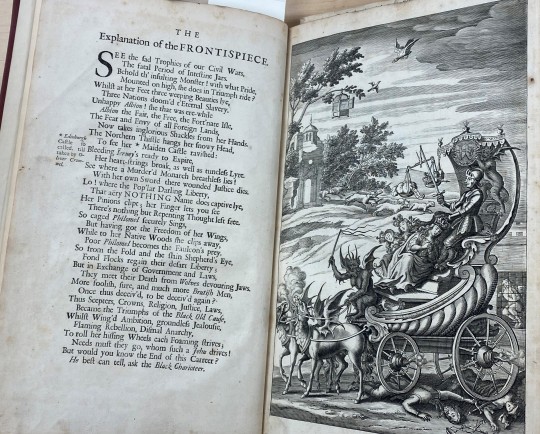

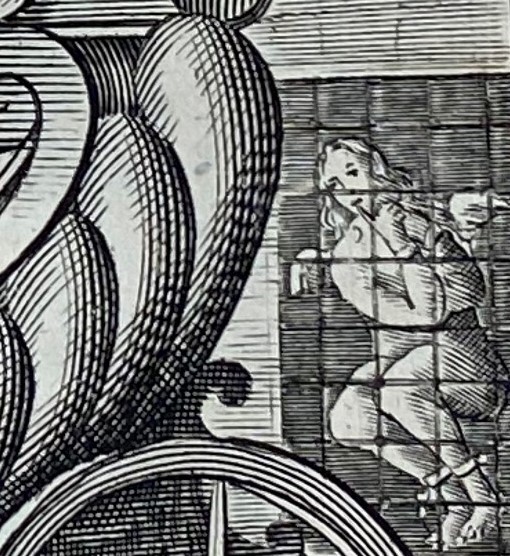
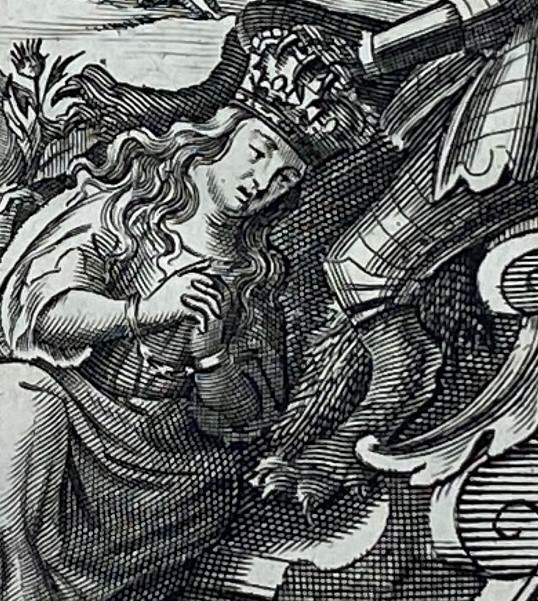
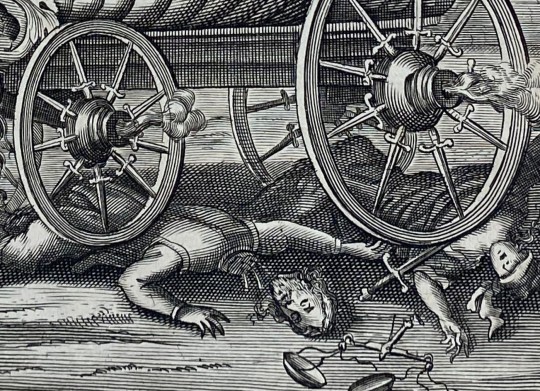
The more I look at this frontispiece (from this 1684 account of the trial of King Charles I), the more the White Lotus Season 2 opening theme song intensifies in my head.
#riesenfeld center#rare books#old books#special collections#law library#legal history#treason#king charles i#trial accounts#17th century#1600s#illustrations#frontispiece#art#symbolism#english civil war#white lotus#woodcut wednesday
85 notes
·
View notes
Text
yall ever wonder if bret easton ellis and donna tartt unalived someone together in the 80s at bennington
#for legal reasons this is mostly a joke#donna tartt#the secret history#tsc#bret easton ellis#american psycho#dark academia#dark academia blog#books and literature#english literature
31 notes
·
View notes
Text
I just learned about the rule of perpetuities in property law and furthermore just learned that every 1L in the country (and also the CA Supreme Court???) thinks it’s unbearably tricky to apply and maybe I’m the idiot here because I just don’t see how it’s that complicated? Try to will some property under a set of circumstances; come up with a crazy what if scenario matching those circumstances; if that violates the rule, you’re out of luck… truly what is the issue here for you all
#I’m not even a little bit interested in going to law school but I think I’d be unbelievably good at it if I did#maybe because I took the history of English common law as a sophomore I find that this rule makes total sense#if you had seen the 12th century property cases I have seen you would be BEGGING for a rule of perpetuities#also the reasoning method makes a lot of sense to me as someone whose other halfhearted legal training is from the Talmud#that shit is all about crazy what if scenarios#but I gather that this is not how US law schools teach the law…?#rare pic of me in the wild
1 note
·
View note
Text
[Hag’s Note: The emphasis in the final paragraph is my own.]
An almost equally notable trial as that of Bury St. Edmunds before Sir Matthew Hale was known as the Sommers Trial, or that of the "Lancashire witches," in 1612. Among the accused were two extremely aged women: decrepit and nearly blind, tottering into second childhood, incapable of understanding whereof they were accused or the evidence against them which, as in the case argued before Sir Matthew Hale, was of the most worthless character. One needs but refer to the records in order to learn the extreme age, ignorance and many infirmities of these women. But as was the case in Scotland, these weaknesses were used as evidences of guilt. The feeble mental and physical condition of "the Lancashire witches," their great age and failing power were used as evidence for their condemnation. From published accounts of this trial, we learn that:
This Annie Whittle (alias Chattox) was a very old, withered and decrepit creature, her sight almost gone, a dangerous witch of very long continuance, her lips ever chattering and walking (talking?) but no one knew what. She was next in order to that wicked, fierce bird of mischief, old Demdike.
This poor old creature "confessed" that Robert Mutter had offered insult to her married daughter; and the court decreed this was a fair proof of her having bewitched him to his death. No condemnation of the man who had thus insulted her daughter, but death for the aged mother who had resented this insult. Designated as "Old Demdike, a fierce bird of mischief," this woman of four score years of age had not only brought up a large family of her own, but her grandchildren had fallen to her care. She had lived a blameless life of over eighty years, much of it devoted to the care of children and children's children. But when decrepit and almost blind, she fell under suspicion of a crime held by church and state as of the most baleful character [and] her blameless and industrious life proved of no avail against this accusation. She seems to have originally been a woman of great force of character and executive ability. But frightened at an accusation she could not understand and overpowered by all the dread majesty of the law into whose merciless power she had fallen, she "confessed" to communion with a demon spirit which appeared to her in the form of a brown dog. From a work entitled The Sommers Trials, the form of indictment is learned.
INDICTMENT
This Annie Whittle (alias Chattox) of the Forest of Pendle, in the countie of Lancaster, widow, being indicted for that she feloniously had practiced, used and exercised divers wicked and divelish artes called witchcraftes, inchantments, charms and sorceries, in and upon one Robert Mutter of Greenhead, in the Forest of Pendle, in the countie of Lane; and by force of the same witchcraft, feloniously the sayed Robert Mutter had killed, contra pacem, etc. Being at the barre was arraigned. To this indictment, upon her arraignment, she pleaded not guiltie; and for the tryall of her life put herself upon God and her country.
One of the chief witnesses at this trial was a child of nine years. Upon seeing her own daughter arraigned against her, the mother broke into shrieks and lamentations, pleading with the girl not to falsify the truth and thus condemn her own mother to death. The judges, instead of seeing in this agony a proof of the mother's innocence, looked upon it as an attempt to thwart the ends of justice by demoniac influence; and, the child having declared that she could not confess in her mother's presence, the latter was removed from the room and, as under the Inquisition, the testimony was given in the absence of the accused. The child then said that her mother had been a witch for three or four years, the devil appearing in the form of a brown dog, Bill.
These trials, taking place in Protestant England two hundred years after the Reformation, prove the worthless nature of witchcraft testimony as well as the superstition, ignorance and entire unfitness for the bench of those men called the highest judicial minds in England. The church having almost entirely destroyed freedom of will and the expression of individual thought, men came to look upon authority and right as synonymous.
-Matilda Joslyn Gage, Woman, Church and State
#Matilda Joslyn gage#witch trials#witch hunts#male mind#english history#the legal system#the more things change the more they stay the same
1 note
·
View note
Text
Alright, it has been over 24 hours, the guy who killed Mr Claim Denied is not going to be caught.
But this will probably not be an isolated incident, because the US governing bodies aren't going to feel motivated to fix the actual problem over one assassination.
With that in mind, this is a great time to familiarize yourself with the US legal concept of "jury nullification," aka "if it shouldn't be illegal, you shouldn't be punished."
The US has a proud and beautiful history of using this as the final say of the people against misapplication and abuse being called "law." Even before the country was founded, in the colonies, this was used to spare the lives of people being put to death for flagrantly spurious reasons.
When, not if but when, this happens again and the next or third or 17th assassin gets caught?
Their verdict is non-guilty.
Caught on tape? Not guilty. Witnesses too? Not guilty. Killing failed and there's a victim ID? Not. Fucking. Guilty.
Every person who kills a healthcare executive is acting in self-defense against people who want them dead first. Anything else is irrelevant.
The jury always gets to decide on Not Guilty, even when presented with perfect evidence of "guilt."
Nullify, nullify, nullify.
5K notes
·
View notes
Text
good news! this is in fact real. it's technically not legal, but has the same status as weed, where it's against the law, but the government has decided not to prosecute about it, so it's functionally legal
the area got the official status about 7 years ago, but it's been a popular area for cruising for 40-50 years. here's an interview about that, in dutch
the municipality started a general project to improve the area in 2022, the last item on the plan is stuff for the bats, bees and snakes in the park, and among the first was putting those signs denoting the cruising area, so it would be clear what is part of it and what isn't. municipality of amsterdam's page about it (dutch).
it seems the area used to be kind of just, an ignored bit of land, where barely anyone went, and this allowed the cruising culture to develop, but the city grew, closer to the area, and the park got more popular, and making formal arrangements was needed to preserve the culture, and that happened, which is neat
The only example of straight oppression is the fact that Amsterdam for straight people is associated with the red light district where generally straight men can pay for sex with beautiful European women. However, for gay people, Amsterdam has a legal gay cruising, clothing optional section of a park where gay men can have sex for free in public.

#bis speaks#if you want a non-dutch source on it#it's called oeverlanden#but i trust in your ability to google if you wanna know more and want to read english pages#nsfw?#gay culture#gay history#queer history#this was fun to research#a friend sent me this to ask if it was true#and i'd seen the post before and hadn't bothered to find out if it was true#but turns out! yes (barring the slight note on definitions of legality)
23K notes
·
View notes
Text
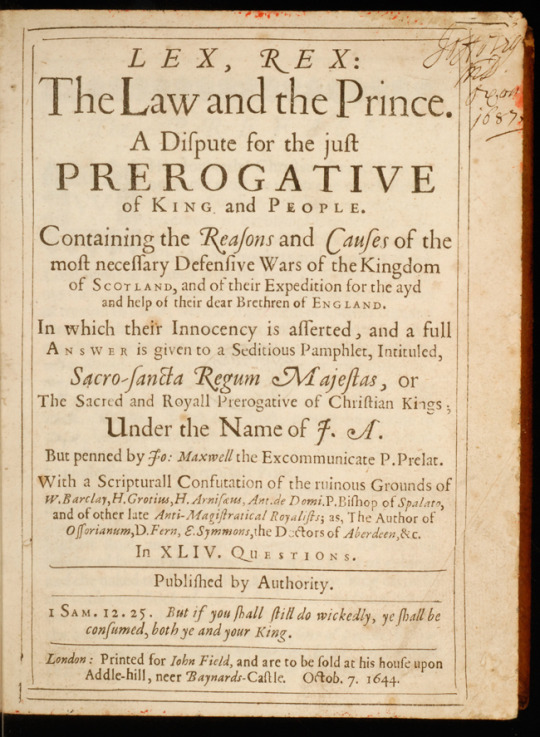
0 notes
Text
We often think of a monarchy as passing down power from father to son or parent to oldest child but that’s highly based around the official English system.
Historically that’s not necessarily how it always worked. That’s why you get so many wars of succession going on especially when the previous king forgot to appoint an heir in time.
The eldest son wasn’t always guaranteed a spot. It could be the king’s brother, or one of his other sons, or his nephew.
Some countries have also historically had a very strict no girls allowed policy. England has mostly prioritized men but keeping it within the previous monarch’s children is of a higher priority than no girls allowed. In some countries the no girls allowed policy is more important so that’s how you might end up with a monarch with many children who appoints his nephew or cousin or something as his heir. Either because all of his kids are girls or because his sons are too young or because his sons are idiots and he doesn’t like them.
Then there’s stuff like the Roman system where you could adopt an adult for inheritance purposes. So you could take an adult man and say for legal reasons this is my son now and he is in the running to inherit my position.
And all this confusion is why the English put into place a playbook on how to do a line of succession. They really simplified it. Oldest son that is an Anglican and has never been Catholic, go to daughters if no sons available, go to next oldest brother or brother’s kids if no children. Keep going up the family tree to look for more heirs if no siblings. Gender requirements were eventually removed. They’ve got everyone mapped out. No confusion about who’s in line for what and when.
Historically though this has almost never been the norm. There’s been so many wars and rebellions in history because people didn’t like who the last guy appointed as his heir.
2K notes
·
View notes
Text
why cant this paper just write itself >:(
#this isnt even for english class i hate everything#it shouldnt be legal for classes other than english history and social science to make you write papers#take me back to last sem i wanna solve math equations and play with rockets again PLEASE
1 note
·
View note
Text
Historical notes on Armand’s cultural background in the show
In the interest of not playing fast and loose with South Asian history and geopolitics, I have, to the best of my ability, compiled this guide on Armand as a character in the historical context of the regions and periods he is associated with. I am not an expert on these things, so anyone more educated than me is welcome to suggest edits. Probably the most complex topic here is language, and so that is the section in which I most likely made errors.
While I do have some formal academic training in this area, I must emphasize again that I am not an expert, nor am I native to any of the countries listed here, so I am functioning mostly on outsider knowledge. In the interest of making this accessible, most of this information can also be found on Wikipedia with a quick google search. This is not definitive or exhaustive, but it is meant to encourage people to be conscientious about not slipping into Orientalist thought or discourse when discussing the character (or ever, obviously). Also please remember not to conflate the character and the actor. This may also serve as a tool for fic writers.
Content warning: discussion of slavery/slave trade
(Main content below the cut)
Period and Region
India
Armand tells Daniel in s1e7 that he is 514 in 2022, meaning he was either born or made around the year 1508. He tells both Louis and Daniel that he is from Delhi, or was at least in Delhi when he was abducted. Delhi is a city in Northwestern India that sits on the border between the states of Uttar Pradesh and Haryana. (There is an Old Delhi and a New Delhi. These two cities abut and overlap one another. Armand refers to Old Delhi.) Therefore, Armand would have been living in Delhi during the latter years of the Delhi Sultanate, which was an empire of Islamic dynasties that ruled Northwestern India from the late 12th century until the Mughal conquest in 1526. (The Delhi Sultanate also pushed expansion into the south and the east during various periods throughout its reign. Its main opponents were other Muslim kingdoms along with Hindu kingdoms, especially in the south.)
Italy
Armand would have been living in the Republic of Venice during the height of the Venetian Renaissance. Like the Delhi Sultanate, the Republic of Venice was also in its later years during this time, but, although the Republic did face economic and political unrest during this period, they remained the richest city-state in Italy. Marius was a Venetian painter, a contemporary of Tintoretto, according to Armand in season 1. Tintoretto lived from 1518 to 1594. Whether the painting Daniel is examining in the episode was painted before or after Armand’s arrival in Venice is unclear, but we can assume that he was living in Venice as Amadeo in the early decades of the 16th century. The Republic entered its full fledged decline in the 18th century, by which time Armand would have been in Paris.
Language
In India
Armand most likely spoke an early version of Hindustani (likely Hindavi) while living in Delhi, although, according to the books, Armand has mostly forgotten his native language by the time Marius buys him. Hindustani first developed under the Delhi Sultanate, and is still spoken today. Its two main branches today are Hindi and Urdu. (Many other languages are also spoken in India today, including English, Punjabi, Tamil, Bengali, and many more. Sadly, not all of these languages enjoy legal status.)
Armand may have also spoken a dialect of Western Hindi, which was commonly spoken in Haryana and Uttar Pradesh, and is an ancestor of Hindustani.
Hindavi and Persian were the official languages of the sultanate.
Hindavi is the most likely due to his region, period, and his Sanskrit name, Arun. Sanskrit is an Old Indo-Aryan language from which many later Indo-Aryan languages are derived. (Sanskrit names are still common in South Asia.)
In Italy and France
However, as mentioned previously, Armand forgets his native language early in life. Therefore, it is unclear whether he counts it among the languages he speaks when he tells Daniel that French was his fifth language.
While in Venice in the books, Armand is trained in classical Latin and Greek, and often communicates in Greek, which was also the canonical language of Eastern Orthodox which he practiced in the books before his abduction. Italian and Venetian were also spoken in Venice at the time, so it is likely that Armand picked up both of those while living there. Even if he only picked up Venetian, he would have learned Italian while living with the Children of Darkness in Rome. Venetian, Italian, and Latin were the official languages of the Republic of Venice.
He tells Daniel that he learned both French and English while living in Paris (making English his sixth language).
Religion
In Dehli
The Sanskrit name Arun also suggests that Armand was from a Hindu family living in Delhi. While having a Sanskrit name does not necessarily preclude his being Muslim, it is just more likely that he was Hindu. The majority religion in Delhi during the sultanate was Hinduism, while Islam was practiced mainly by the elite, although conversion was common. The state religion of the sultanate was Sunni Islam. Christianity, Buddhism, Jainism, and Zoroastrianism were also practiced in the sultanate.
Sanskrit is the canonical language of both Hinduism and Buddhism, but Buddhism was facing persecution during this period, and therefore becoming increasingly rarer in the north.
We can assume that Armand was devoted most likely to Hinduism, or possibly one of the others listed, as Armand is deeply religious in the books.
In Dubai, Venice, and Paris
We do see Armand praying according to Islamic practice in season 1. Even more confusingly, Daniel points out that the phrase “asr namozi” is not Arabic, but perhaps Kazakh. “Asr namozi” is actually an Uzbek phrase referring to the asr prayer, or “afternoon prayer,” in Islam. Why Armand would be speaking Uzbek is lost on me, as nothing else in his history necessarily suggests ties to the region. It could be part of his Rashid disguise to somehow misdirect Daniel. Whatever the case, as a highly intelligent five hundred year old vampire, I’m sure Armand could learn any language he wanted.
While Armand may not have practiced Islam during his life in Delhi, it is entirely possible he later converted. If Armand was Hindu, it would also make sense that he lapsed out of practice in Venice, as, in the books, Armand loses almost all ties to his native culture while in Venice (his name, his language, his religion, etc.) at least partially due to Marius’s influence. Marius’s beliefs are closely aligned with western humanism, and so he discourages Armand from complete devotion to religion. The state religion of the Republic was Roman Catholicism, but Eastern Orthodox, Protestantism, and Judaism were also practiced. There was also a small Muslim population, mainly Ottoman merchants.
The “Children of Darkness,” the vampire cult which kidnaps Armand in Venice and which he later leads in Paris, follows Catholic teachings. In the book and in the show, the cult’s obsession with Satan is explicitly Catholic. Satan is also an adversarial figure in Islam (called “Iblis” or “Shaitan”), so if Armand was a practitioner of Islam before, he likely would have been able to syncretize those beliefs and practices with those of the Children or Darkness. However, by the time Lestat finds Armand, he has lost faith (if he ever had it) in the teachings of the Children of Darkness. The last is true of both the show and the novels.
In the novels, Armand alternates between periods of religious fanaticism and zealotry and total atheism, so it would make sense that, along these oscillations, he would also move between different religions, trying to find the right one. In the books, after Armand meets Lestat, he enters a period of atheism that lasts well into the twentieth century. If the show is following this sequence, then it is likely that Armand’s praying in front of Daniel is just part of his disguise. However, the show clearly is not following the novels’ timeline to a T, so it is also entirely possible Armand is genuinely praying in this scene.
Slave Trade
(Disclaimer: Slavery is, unfortunately, ubiquitous across cultures and time periods. While slavery is deplorable in any context, the intent of this post is not to make moral judgements about any one culture. It is simply to discuss the possible historical context of a fictional character. We ought to condemn slavery wherever we see it, but we ought not to view it as pathological to one culture or another. Slavery is still practiced in various forms today (wage slavery, convict leasing, illegal human trafficking, etc.) Slavery serves a capitalist market, but it can create revenue in other systems as well.)
Slave trade was a major economic practice under the Delhi Sultanate, with the enslaved most commonly being of Turkic or Hindu origin.
(From the Wikipedia page on “Slavery in India.”)
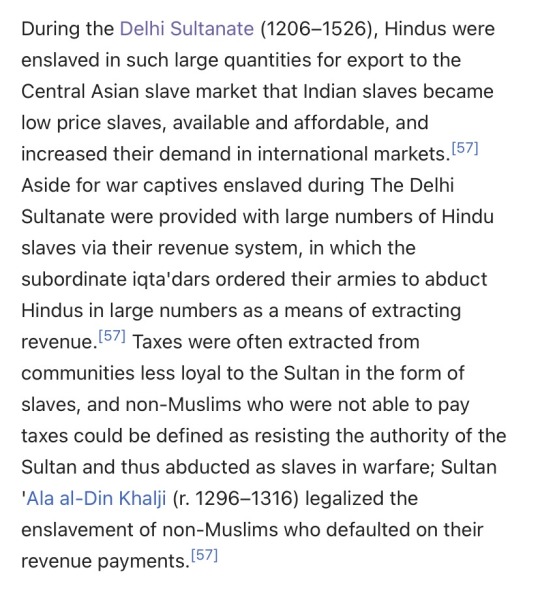
Enslavement of Muslims was far less common under the Delhi Sultanate (although many enslaved people converted to Islam), and so this, again, suggests Armand was most likely a Hindu.
Slave trade was highly regulated under the sultanate, and private slave trade was essentially banned. The exporting of enslaved people on the international market was an important source of revenue for the sultanate, especially during military campaigns. (Slavery continued in the Mughal period, but in somewhat different contexts.)
Therefore, Armand was likely a young Hindu who was abducted in Delhi with sanction from the state and sent overseas to be sold on the international market, landing him in Venice.
However, it is also possible that Armand was abducted by Venetians, as the Republic often sent merchant ships to foreign countries, including India, during this period. The Republic also had many trade outposts and territories in various central and west Asian cities. I am unsure whether this type of trade would have been considered legal or permissible under the sultanate.
In the books, Armand is abducted by the Ottomans and taken to Constantinople/Istanbul to be sold. This is a less likely possibility for the show, given the shift in region.
//
If you’ve stayed with me this long, thanks for reading. All bolded terms have corresponding Wikipedia articles. This post may be edited according to new information or outside corrections.
#the vampire chronicles#interview with the vampire#armand#interview with the vampire amc#interview with the vampire spoilers#book spoilers#the vampire armand#iwtv amc#amc iwtv#iwtv spoilers#iwtv#tvc#iwtv text post#iwtv discourse#iwtv theory#iwtv fic
237 notes
·
View notes
Text
So, to get serious for a moment. If you've been following me for a while you're surely aware of how bad Javier Milei's government is for our country and in particular for science and education. This has affected me very personally, as the recent funding cuts mean I'm basically unemployed right now. This is an undesirable situation to say the least, and because of the general crisis we're going through that affects virtually all institutions in the country, my job search is not easy.
This means I might have to move away soon, perhaps to another province or country, if I cannot find a job here, which is a huge expense I must consider and save for. And also, my family is going through legal expenses (nothing bad, but still a money sink) and I am unable to help them right now. Along with many other expenses that get worse every week (not an exaggeration) given our current economic crisis. So right now, I'm looking for any kind of income until hopefully I can get a stable job.
I would really appreciate if you could consider supporting me on Ko-Fi, even a little bit means a lot here on Argentina. And I want you to get something out of it! If there's something my years of study have been useful for, is to learn about how the world works, and if you know my passion for worldbuilding and love the things I write about it, please, do feel free to ask me questions, suggest me things to write about, or DM me to talk about your writing. I often take my time to answer, but if there's anything I have now, it's unfortunately time. So I hope you consider supporting me, and regardless, you can look forward to more worldbuilding, science and history posts. And Argentina shitposting of course.
In a more professional note, I am also a certified and experienced English-Spanish translator. If you're seriously looking for someone with that skill, you can DM me.
So, that's it. Thank you for reading.
702 notes
·
View notes
Text
In addition to my Monkey Man post from earlier, the always kind & sweet Aparna Verma (author of The Phoenix King, check it out) asked that I do a thread on Hijras, & more of the history around them, South Asia, mythology (because that's my thing), & the positive inclusion of them in Monkey Man which I brought up in my gushing review.
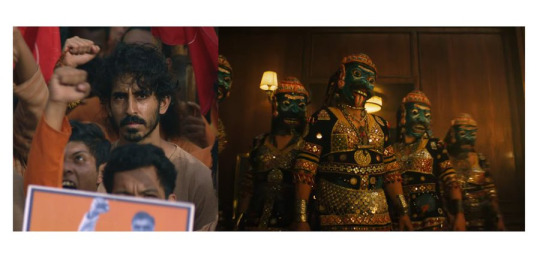
Hijra: They are the transgender, eunuch, or intersex people in India who are officially recognized as the third sex throughout most countries in the Indian subcontinent. The trans community and history in India goes back a long way as being documented and officially recognized - far back as 12th century under the Delhi Sultanate in government records, and further back in our stories in Hinduism. The word itself is a Hindi word that's been roughly translated into English as "eunuch" commonly but it's not exactly accurate.
Hijras have been considered the third sex back in our ancient stories, and by 2014 got official recognition to identify as the third gender (neither male or female) legally. Pakistan, Nepal, Bangladesh, and India have accepted: eunuch, trans, intersex people & granted them the proper identification options on passports and other government official documents.
But let's get into some of the history surrounding the Hijra community (which for the longest time has been nomadic, and a part of India's long, rich, and sometimes, sadly, troubled history of nomadic tribes/people who have suffered a lot over the ages. Hijras and intersex people are mentioned as far back as in the Kama Sutra, as well as in the early writings of Manu Smriti in the 1st century CE (Common Era), specifically said that a third sex can exist if possessing equal male and female seed.
This concept of balancing male/female energies, seed, and halves is seen in two places in South Asian mythos/culture and connected to the Hijra history.

First, we have Aravan/Iravan (romanized) - who is also the patron deity of the transgender community. He is most commonly seen as a minor/village deity and is depicted in the Indian epic Mahabharata. Aravan is portrayed as having a heroic in the story and his self-sacrifice to the goddess Kali earns him a boon.
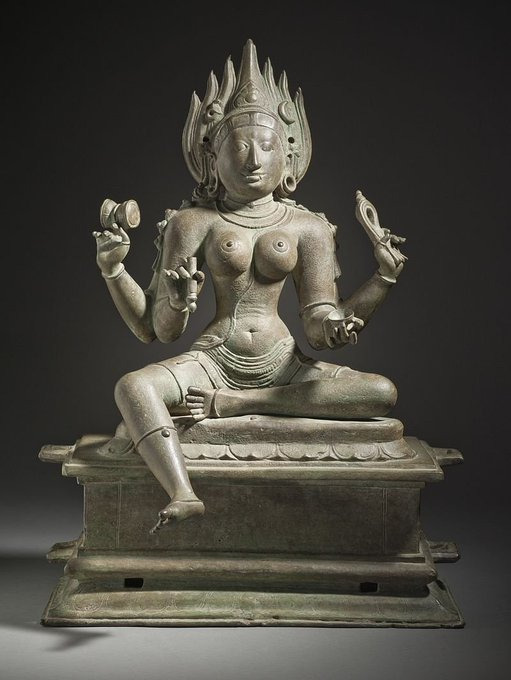
He requests to be married before his death. But because he is doomed to die so shortly after marriage, no one wants to marry him.
No one except Krishna, who adopts his female form Mohini (one of the legendary temptresses in mythology I've written about before) and marries him. It is through this union of male, and male presenting as female in the female form of Mohini that the seed of the Hijras is said to begun, and why the transgender community often worships Aravan and, another name for the community is Aravani - of/from Aravan.
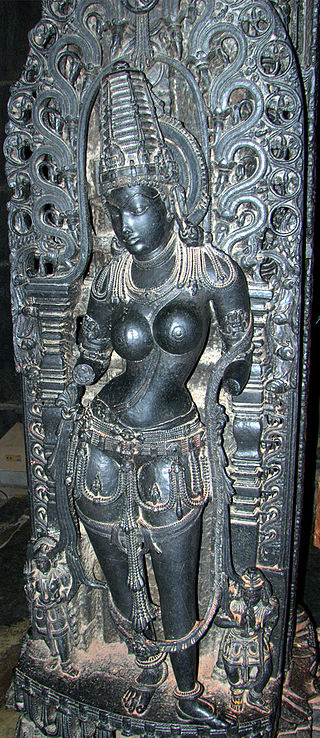
But that's not the only place where a gender non conforming divine representation can be seen. Ardhanarishvara is the half female form of lord Shiva, the destroyer god.
Shiva combines with his consort Parvarti and creates a form that represents the balancing/union between male/female energies and physically as a perfectly split down the middle half-male half-female being. This duality in nature has long been part of South Asian culture, spiritual and philosophical beliefs, and it must be noted the sexuality/gender has often been displayed as fluid in South Asian epics and the stories. It's nothing new.

Many celestial or cosmic level beings have expressed this, and defied modern western limiting beliefs on the ideas of these themes/possibilities/forms of existence.
Ardhanarishvara signifies "totality that lies beyond duality", "bi-unity of male and female in God" and "the bisexuality and therefore the non-duality" of the Supreme Being.
Back to the Hijra community.
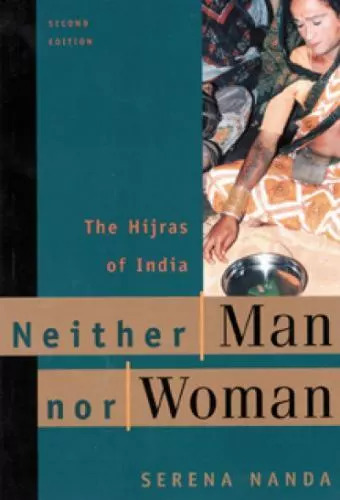
They have a complex and long history. Throughout time, and as commented on in the movie, Monkey Man, the Hijra community has faced ostracization, but also been incorporated into mainstream society there. During the time of the Dehli Sultanate and then later the Mughal Empire, Hijras actually served in the military and as military commanders in some records, they were also servants for wealthy households, manual laborers, political guardians, and it was seen as wise to put women under the protection of Hijras -- they often specifically served as the bodyguards and overseers of harems. A princess might be appointed a Hijra warrior to guard her.

But by the time of British colonialism, anti-Hijra laws began to come in place folded into laws against the many nomadic tribes of India (also shown in part in Monkey Man with Kid (portrayed by Dev Patel) and his family, who are possibly
one of those nomadic tribes that participated in early theater - sadly by caste often treated horribly and relegated to only the performing arts to make money (this is a guess based on the village play they were performing as no other details were given about his family).
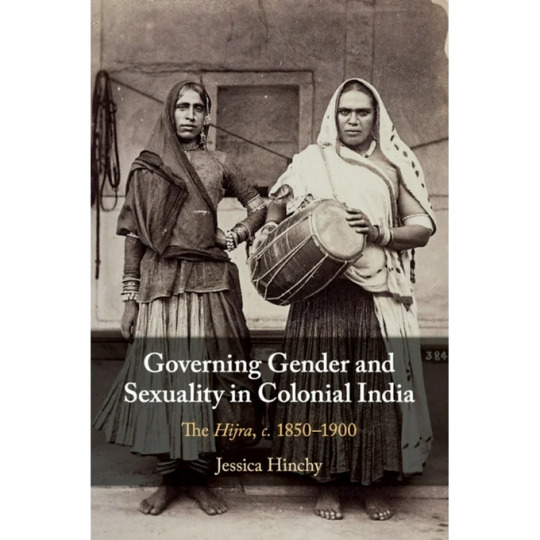
Hijras were criminalized in 1861 by the Indian Penal Code enforced by the British and were labeled specifically as "The Hijra Problem" -- leading to an anti-Hijra campaign across the subcontinent with following laws being enacted: punishing the practices of the Hijra community, and outlawing castration (something many Hijra did to themselves). Though, it should be noted many of the laws were rarely enforced by local Indian officials/officers. But, the British made a point to further the laws against them by later adding the Criminal Tribes Act in 1871, which targeted the Hijra community along with the other nomadic Indian tribes - it subjected them to registration, tracking/monitoring, stripping them of children, and their ability to sequester themselves in their nomadic lifestyle away from the British Colonial Rule.
Today, things have changed and Hijras are being seen once again in a more positive light (though not always and this is something Monkey Man balances by what's happened to the community in a few scenes, and the heroic return/scene with Dev and his warriors). All-hijra communities exist and sort of mirror the western concept of "found families" where they are safe haven/welcoming place trans folks and those identifying as intersex.
These communities also have their own secret language known as Hijra Farsi, which is loosely based on Hindi, but consists of a unique vocabulary of at least 1,000 words.
As noted above, in 2014, the trans community received more legal rights.
Specifically: In April 2014, Justice K. S. Radhakrishnan declared transgender to be the third gender in Indian law in National Legal Services Authority v. Union of India.
Hijras, Eunuchs, apart from binary gender, be treated as "third gender" for the purpose of safeguarding their rights under Part III of our Constitution and the laws made by the Parliament and the State Legislature. Transgender persons' right to decide their self-identified gender is also upheld and the Centre and State Governments are directed to grant legal recognition of their gender identity such as male, female or as third gender.
I've included some screenshots of (some, not all, and certainly not the only/definitive reads) books people can check out about SOME of the history. Not all again. This goes back ages and even our celestial beings/creatures have/do display gender non conforming ways.
There are also films that touch on Hijra history and life. But in regards to Monkey Man, which is what started this thread particularly and being asked to comment - it is a film that positively portrayed India's third sex and normalized it in its depiction. Kid the protagonist encounters a found family of Hijras at one point in the story (no spoilers for plot) and his interactions/acceptance, living with them is just normal. There's no explaining, justifying, anything to/for the audience. It simply is. And, it's a beautiful arc of the story of Kid finding himself in their care/company.
#hijra#trans representation#monkey man#dev patel#transgender#trans rights#trans rights are human rights#third sex#indian history#indian culture#colonialism#imperialism#south Asian mythos#South Asian myths#Aravan#Iravan#Mahabharata#hindu mythology#hindu gods#kali goddess#krishna#hindu mythology art#Ardhanarishvara#Shiva#Parvarti#sexuality#gender fluid#fluid sexuality#trans community#transgender rights
788 notes
·
View notes
Text
Arabic in the batfam
@leefail has gotten me obsessed with how arabic would work in the batfamily
because arabic is natively spoken by 230 million people and is taught in any muslim majority to country because its considered poor faith to recite the Quran in any other language.
its also the most inconvenient and stupidly difficult language to learn in human history.
why?
because it is a colonial language
meaning the Arab empire happened and we all switched to arabic but unlike English... there wasn't the internet for people to learn how the 'og Arabs' spoke it and Arabs didn't slaughter and replace like the puritans they just taxed and converted (slaughter optional im not ignoring north Africa but it was region specific)
so that means that arabic which has a collective vocab of about 12.1 million words as well as a nasty habit of giving 100 words the same meaning as well as assigning 1 word like 8 meanings got practiced by these arabic speaking countries differently
so certain words fell out of use or changed meaning in one country while being startlingly popular in another
it also means that a lot of arabic regions maintained their older speech patters
latinised softer letters in levant countries closer to Cyprus due to the presence of Aramaic, syrianic and latin.
harsher more guttural sounds in regions that were closer to Iran.
so what does this mean? and Why does this mean arabic is a bitch to learn
well for one you don't write in your regional dialect, you write in modern standard or fus7a which is a whole other beast. Meaning that you don't really learn to speak in school.
two the dialects are significantly different enough across the region that people who learned arabic in Lebanon won't understand people from morocco.
now we are all SUPPOSed to speak Modern Standard Arabic but you have to understand how little it is used outside of like legal jargon. so you kinda lose it once you leave Arab formal education.
Which means if you immediately default to MSA 99% of Arabs will assume you are a cop like if you know the word for government but not skirt... come on man be less obvious.
Now most us speak 1 -3 dialects and understand 9-10
me personally I speak a levantine dialect and can understand most Egyptian, Jordanian and Gulf dialects. Iraqi and the rest of North Africa (with the exception of Tunisia) not so much.
Now what does that mean for arabic in the batfamily
its too useful for the Bats to not use
so do all of the bats speak arabic 1000%
Do all of them speak different dialects 1000%
Here they are imo
Bruce: Bruce is a cop (MSA) He can code switch and speak all the dialects but he just genuinely likes MSA, its the most complex and intricate form of the language and what's most commonly used for things like poetry and literature. But it does mean that his speech comes off very stilted and cringeworthy to most Arab speakers. The first dialect he learned was definitely Egyptian because its the one that's the most common in music and television as well as having the largest group of people speaking it (110 of the 230 million are from Egypt)
Dick: now I have no evidence for this but Dick Grayson would speak Lebanese arabic. It's notoriously the softest of the dialects and has the most higher pitched and flippy tones. His mother also grew up in France which would Fit for Dick since Lebanese Arabic tends to substitute harsher arabic words with French. the most common greeting in Lebanon is 'Hi, kefak ca va' which is English, arabic and French. And for a cameleon character with such an interesting and convoluted ethnic background I think picking the softest dynamic tongue with the most intersectionality fits.
Jason: Jason todd speaks Jordanian arabic, Jordanians are the most hilariously creative people in the mid east imo. there are turns of phrase from Jordan that kinda make you pause and blink for a second because damn... okay then. I have never met a Jordanian without a degree in the most creative insults you've ever heard. Jordanian arabic is also very close to stereotypical Levant arabic which still maintaining a lot more of the harsher more guttural sounds that countries like Lebanon and Syria tend to exclude. Jordan also has a huge Bedouin population and I just think he'd match that vibe
Tim: Tims parents were archeologist.. Egyptian. Tim has the heaviest Egyptian accent when he speaks arabic. His parents definitely had him learn it in hopes he'd follow their footsteps. Ja become Ga and he works so damn hard to keep the accent out of his words to try and hide any identifiers and he fails miserably. He also uses it the most out of the kids and he can read and understand MSA fluently unlike Dick and Jason who are fine readers but cannot speak it for the life for them. Tim also does the international students Mix and Match where you sometimes just use a word that's country specific to other countries. Tim doesn't tell Damian he understands it and so Damian has the most intense shock of his life when Tim replies back to his angry arabic muttering.
Damian: So I know that talia studied at the university of Cairo but I feel like Ra's speaks a very old form of arabic so I think Damian code switches quite often. I picture him speaking like a Saudi upper court dialect when he's talking with Ra's and I think talia does the same. But I think Damian is most comfortable somewhere in-between Jordan and UAE arabic with more levant terms of endearment (because of the aforementioned softness and ik talia isn't a soft parent in canon but she is one in my heart so there) and more casual speech following GCC speaking patterns. Tho I think Damian can understand and speak all of the dialects including the less popular ones like Moroccan daraji.
Steph: I have zero evidence and not even an elaboration but if steph was Middle Eastern she'd be Iraqi bc vibes so that's what she speaks fuck you im right. It's definitely on the harsher side tonally but idk she gives the energy of using it and teasing Jason and Dick for using frou-frou arabic. Tho I will absolutely make the argument that she learned Syrian arabic for a friend pre her involvement with the bats.
Also Steph, Dick and Jason do sip and bitch sessions and they disagree on the correct way to make coffee. Jason is absolutely a traditionalist, Dick is a Turkish coffee believer and steph adds way too much cardamom.
also also Jasons favorite poet is Darwish, Tims fave is Al-muttanabbi, Dicks is Gibran (ik he spoke mostly in English but tell me Dick Grayson isn't gonna freak over 'your children are not yours they are children of the world') , Bruces is Qabbani. Steph doesn't like poetry but she has absolutely read memoirs of a woman doctor by nasal el saadawi and loved it
#dick grayson#bruce Wayne#tim drake#Damian Wayne#jason todd#batfam#batfamily#nightwing#batman#comics#red hood#arabic info dumps#im so homesick for the Middle East y'all#you don't understand#im writing this instead of studying for my exams#im arab so all my faves are vaguely Arab coded
264 notes
·
View notes
Text
The long awaited (maybe? Idk how many of you were waiting for this) SSSBMTY College AU!

Majors in bold
Headcanons in regular text
Notes about the art indented in orange

Luffy — Undeclared
Was forced into school by his gramps. (The university dean. The fucking dorm building all the Strawhats but Jimbei live in is named after him.)(it was this or join the navy.) Takes the most random classes he can. Some of them are advanced and require perquisites and no one knows how he keeps getting into them. Wears shorts and sandals in winter & will run any errand or do any odd job for food. He has a very nice bike he got for free from a garage sale that Franky fixed up. There's a campus wide bet on when and what he'll choose as his major. His bucket hat was a gift from Shanks, the universities World Economics prof. Has a million friendship bracelets on his ankles because Ed makes them when they're stressed. Never has a bag on him. Fights Canadian geese on the way to class, like a fucking maniac. Protected species who?
When I tell you that this drawing of Luffy is the first time I've ever drawn actual feet with toes that don't look fucking ridiculous I need to cheer for me. Why is he a different flavour of boy every time I draw him please. His ass isn't rubber in this universe, of course he's scuffed to shit. Chopper ran out of Spiderman bandaids, sorry bud. Advocate for the Single Piercing Luffy™ agenda, he went and got it done with Ed when they got their helix.
Ed — English major Psychology minor
Took History of Piracy for easy grades & a story idea. Known around campus as that asshole who'll tell you exactly which of your roommates ate your leftovers for $5. Is roommates with Luffy because of a system mix-up when they got distributed. Always wears a Burberry trench coat Nami thrifted for $3 and gave them as a bday gift. Carries everything in a ratty falling apart messenger bag. Them and Luffy filled out marriage papers on a dare, Zoro (who got legally ordained on a dare minutes before) oversaw that, Zoro and Ed filed the papers when they were drunk. So Ed and Luffy are legally married. And they don't even notice until tax season and Jonah, Ed's accounting friend, asks about it.
I need you to ignore the inconsistence with the hands in these ok? Some of them get very nice and normal hands, and others get weird shaped blobs. Sorry Ed, them's the breaks kid.
Zoro — Health and Fitness major Mathematics minor
Literally no one knows why he has a Mathematics minor, least of all him. P sure he walked into the wrong class on the first day and just stuck with it. The most terrifying captain of the kendo team the university has ever had. He's won more championships and trophies in his tenure than the school has in its history, the revenue he brings in from sponsorships and such make them turn a blind eye to his... eccentricities (three sword style. Nobody has stopped him yet, anyone who says it's illegal gets penalized). Has had campus security called on him so often from being creepy when walking home from the gym in the dark there's a poster of him in the security office that says 'NOT ACTUALLY A THREAT. JUST WEIRD AND WALKS WITH PURPOSE.'
Zoro's sword patch on his jacket was designed by Usopp, embroidered by Luffy for a class (shittily) and fixed up and sewn on by Ed. Those docs have seen war. He has put them through hell. He has walked through a fucking river with those things, he superglues them back together every time they break. Franky had to strongarm him into getting the soles professionally replaced.

Nami — Meteorology major Finance minor
All of her clothes are thrifted designer things. Regularly terrorizes Value Village employees. Anything she has that isn't thrifted she gets from the many estate sales she plagues, snatching grandma's entire Chanel collection and all her nicest jewelry. She has absolutely everything anyone could ever need in her purse. Tampons and pads? She gotchu. Extra pens? It'll cost you, but yeah. A curling iron? Sure, why the hell not. She runs the betting pool on Luffy's major with Ed. She also writes a gossip column for the school newspaper and has a podcast she uploads a new episode to every few months. Shows up to every class looking like a supermodel no matter the time. 7am? Perfect. 10pm? Fabulous. Your go-to if you get locked out of your dorm. Has a moped but barely uses it.
Nami's bag is a large Prada Gallaria Saffiano bag, which I painstaking drew to accuracy down to the colour even though it still looks ever so slightly different, because Nami is a big purse girl. The compass rose necklace was a going away gift from Nojiko when she left for uni. I think her haircut is so cute I love her sm. Don't pay any mind to how fucking disheveled half of their lineart looks next to her pls.
Usopp — Graphic Design major
Not a member of the archery club, but shows up enough he’s in all the team photos. Was originally the designated driver, had a pretty little mini van they called the Merry, had one of those fucking fuzzy dice hanging mirror things in the shape of a sheep’s head. Got in a bad car accident and she got totaled by some jackass in a red Honda Civic. Dating Kaya, who’s a nursing student. They barely see each other because she’s so fucking busy and half the students are convinced the girlfriend Usopp is always talking about and calling is fake. The Strawhats have a dnd campaign that they run every other week, Usopp DM's. On weekends he works at an axe throwing range and holds the record for most bullseyes in a row. They have his picture mounted on the wall.
Usopp's necklace is the old key to the Merry, and he engraved his belt buckle for a project. I cursed his ass with the giant fuck off portfolio bag because those things are so big and unwieldy. The people in his program's studio never clean their paint up properly, that's why he's covered in it. Advocate for the Usopp With Gages™ agenda. God he is such a cutie patootie.
Sanji — Business degree
Literally grew up working in a restaurant, he’s only going to school to get the degree so he can open his own and also because Zeff threated to castrate him if he didn't get a higher education. Cooks basically every single meal for the dorm, since it’s just the Strawhats (it's a new (old it's old and was refurbished. Everyone assumed it was haunted.) building that they just dedicated to Garp. Has no other residents yet). Him and Zoro fight so much in their shared room half the time he ends up kicking him out and making him sleep in the community room lmao. He just shows up in half the culinary classes because he hates the business ones so much, the one time someone tried to tell him to leave he cussed them out for a full ten minutes while gesticulating wildly with a knife in hand. They never tried that again. Saw one of the profs berate a young lady for wearing a dress shirt to class because it’s impractical and proceeded to take that personally. Yeah he wears three piece suits to all his classes, he could still kick you ass in ‘em. Shut up. Volunteers to show around foreign exchange students because he can speak at least 4 foreign languages fluently. Is it to woo pretty French girls with his charm? Wouldn't you like to know.
I could not draw Sanji in a decent pose for the life of me, his ass was just not having it. He's got one of them really nice leather messenger bags with the lined pockets and filigree, he's very proud of it.

Chopper — PreMed
One of the few Strawhats who regularly sees Usopp’s reclusive girlfriend, and is very confused as to why people think she isn’t real. Still a literal child (is 15 still a child? Yeah that's like barely a teenager), a goddamn prodigy and got in with an incredibly good recommendation from the best doctor in the country, who just so happens to be his adoptive mother. He’s literally too cute for anyone to question that, plus he’s the sharpest tack in the damn class. He knocked his front tooth out ages ago (it was an adult tooth) but he's too fucking busy to get an appointment to get it fixed, just adds another layer to his babyface. Nice girls keep asking him if he's here to go see his parents or older siblings, he's endlessly infuriated by it and Sanji is endlessly jealous. Saved Ed from choking to death in a Domino's parking lot the first time they met, he dropped his pizza doing it so they bought him another. The rest is history. Does not feel cold, wears chunky boots year round. Got them reflective ass eyes like a deer, no one has ever taken a good picture of this child. He looks fucking possessed in his school ID.
TELL ME WHY I ALMOST FORGOT TO DRAW CHOPPER. I finished drawing Franky and was like "gee, only Brook and Jimbei to go! Good for me," and then I had to pause while looking as the picture of the group I was semi-referencing for heights n shit and was like "OH FUCK THE CHILD—" He's so cute tho. He's giving lil baby Goro Akechi. The argyle sweater vest and Timbs were a must, so was his hockey boy haircut. Matching backpack and tie for the win. Oh and the freckles, Chopper with freckles is everything to me.
Robin — Has a million hyper specific degrees. Currently earning her third doctorate.
Very mysterious and sexy. Mature student who occasionally gives lectures in the archeology program when she has free time. Owns a motorcycle but barely rides it. How is she not in debt after so much schooling? Don't fucking ask if you want to live. Is that why she lives in the dorm building? Do. Not. Ask. She and Luffy attend the same Theology class, no one knows how Luffy is passing with such good grades, but Robin is adamant that he doesn't take notes or borrow hers, and takes to having the same scores as him with grace. Child actor on one of those show like Barney (but not Barney dear lord) or Reading Rainbow and people only knew her as 'that kid with the creepy fuckin stare.' She was a meme a few years back, they called her the devil child. Every time someone asks her about it she just says she has no idea what they're talking about while giving them the creepy stare.
Women with Big Bags truther, right here. Robin deserves to be put in a suit. Goddamnit, get that woman in a suit!
Franky — Has a bachelors of Engineering, a bachelors of Architecture, and is earning his (water specific) Architecture degree
Currently the groups designated driver (after the tragic death of the poor Merry) with his supped up SUV, the Sunny. How do all the Strawhats fit inside? The power of love, obviously. That car will NOT fucking move if even one of the seatbelts is undone. Made Ed and Luffy wedding rings after he found out they accidentally got married. (Only after laughing for a half our straight, almost passing out, and laughing again. Then he cried for another hour about how beautiful it was.) He sometimes works as a nude model for life drawing classes on campus. Half of the the Strawhats have, in one way or another, seen him in the buck. Has knee braces from an... incident... with a train when he was younger. Now he volunteers at KidsAbility and has a shift on the campus crisis/suicide hotline. Huge advocate for mental health services at the school. He lives in the dorms for the ✨experience✨. Even worse than Luffy, mf wears booty shorts in the dead of winter. He's constantly dressed like It's laundry day. One of those guys from a famous Vine when he was younger that just gets stopped while he's walking so people can go "TRAMPOLINE VASE GUY??" (Iceberg was recording. I love Iceberg.)
Yes Franky is wearing an I ♥ MILFs shirt, what of it? It was a gift. Drawing him was an exercise in struggling with the pompadour and getting uncomfortably close to drawing Syndrome. Yes, he's cold all the time. No, he will not stop.

Brook — Literally no one knows. Something music related probably.
Fucker has been around forever, there’s old ass profs who swear to god they went to school with him and he hasn’t aged a day. Regularly plays local bars and cafes. Doesn't own a cellphone, he can literally only operate rotary phones. Computers confuse the shit out of him. Knows nothing about pop culture or recent events, but is up to date on everything in the music industry. He sometimes helps organize the old library archives because he's somehow the only person who understands the system they're organized in. Sometimes he'll just namedrop a famous singer/band he's either played with, done karaoke with, or done background vocals/instrumentals for and you have to guess whether he's telling the truth or just saying shit. There's a campus wide betting pool (run by Nami and Ed, go figure) on whether he's a vampire, ghost, time traveler, or Dorian Gray in disguise. Prepares the questions for 70s night pub trivia. Every time the Strawhats plan a ghost hunt he's busy, then at the end they find out that all the paranormal shit they've been experiencing is just him running his errands. It's happened at least four times.
Is Brook off-putting enough? I was trying to make him off-putting. He swears up and down the neck tattoo was gotten on a dare by Elton John, what, you gonna question a man who looks like he stepped out of Coraline? The skeleton gloves were a gift from Ed.
Jimbei — Has already graduated as a Marine Biology major Political Science minor and is taking both a Gender Studies course and a Peace and Conflict Studies course years later.
Teaches martial arts at a local dojo on weekends and volunteers with the martial arts team on campus. Robin helps him organize protests on weekends. He's good buds with a lot of the faculty and gets invited to after work drinks regularly. He helped establish a program that walks people who stay late at the library to their dorms when he was first a student that's still going strong to this day. Lives off campus and has the Strawhats over for BBQ on long weekends. Literally the only time the Strawhats eat food not made by Sanji. The Grill Master™. Somehow holds some kind of record or high score at every single bar/pub in town. Knows every single mailman and janitor by name. MVP of the catch and release fishing club, helps plan all of their trips.
I struggled with him. I struggled hard. That's a man who went his whole childhood with a horrendous underbite and only got it fixed once he was an adult. Ed gave him the fishing lure earrings out of guilt after he brought them on one of his fishing trips and they fell in and nearly capsized their boat. IT'S A REUSED PLASTIC BAG JIMBEI IS RESPONSIBLE ABOUT THE ENVIRONMENT—
#sssbmty#sssbmty college AU#one piece#one piece ocs#fanfic#ocs#art#character design#fanart#college au#please I love them all sooooo much#monkey d. luffy#roronoa zoro#nami#usopp#sanji#tony tony chopper#nico robin#franky#soul king brook#jimbei
456 notes
·
View notes
Text
“make me (yours).” | r. sukuna

w — [ minors do not interact ] modern! AU, hints of sugar daddy vibes ;), older man/younger woman, age gap, everyone is above 20+ and legal age, male masturbation, Sukuna imagining seggs positions and shit like that, Sukuna is around 36 & Reader is around 22/23, tbh sukuna being a comfort character rn. jjk after 235? it’s non-canon lmao
a/n: this is the most I’ve ever written that’s sinful I’m not used to this (it’s been so damn long since i have written anything remotely sinful omfg) and it’s not even that much I’m so embarrassed y’all HELP— also part two depends on you guys and any ideas you want to send in through my ask box :3
part one | part two
[ first divider by @/benkeibear, the second by @/cafekitsune ]

♥️ Rich! Sukuna who meets you through his younger brother, who’s a few years older than you. You’ve been in Japan for a few years now, that much he knows, attending the same school his little brother got into. And now he’s determined to find out everything about you.
♥️ Rich! Sukuna who’s so fucking glad you can speak Japanese. He knows English, yes, but he prefers it when you speak his native tongue, because he fucking loves your accent and gets off on it. It’s exotic — you’re exotic — and he can’t help the temptation of wanting you and more.
♥️ Rich! Sukuna who knows to keep his smug smirk into himself when his little brother finally mans up and finally introduces you to him one day when he comes home to work on a project that you’re helping him with. And he knows that Yuuji knows about the look on his face. Because he knows his history with women. Yuuji knows he’s made a mistake introducing you to each other.
Or so he thinks.

Sukuna is thoroughly amused by you, although there are times where he becomes frustrated. You’re not an easy case to crack, and not easy to tease and rile up. Perhaps that’s the part of you that’s from accelerated maturity.
You’re smarter than the average person, even the people slightly above average. You’re intellectually and psychologically challenging and he very much likes it. It’s been a long time since he’s had the kind of stimulation you’ve brought him. Since his and Yuuji’s father passed away.
He watches from a distance as you and his brother go over notes and work and crack jokes that put a pretty smile on your face. He can’t hear your laughter from where he stands, but he’s positive it’s as lovely as your smile.
As for you, you know you’re being watched. You look to the tall man out of your peripheral vision and halt rolling your eyes.
“Your brother is never subtle, is he?”
Yuuji sighs heavily. “Never.”

♥️ Rich! Sukuna who hates the fact he can’t see you more often. So he digs and digs and then finds out about some old family debts and a couple things for medical expenses he can easily pay off to hold over your head, to use as a means to be something akin to a sugar daddy so he can order you around and see you whenever he wants to.
And it comes as no surprise to him when he mentions it the next time his brother brings you over for schoolwork that you’re startled by him finding out. He only mentions it after Yuuji has fallen asleep on the couch. You give him the wide-eyed expression of shock, probably wondering how he found out about it.
But unlike his expectations, you don’t ask how he knows. you don’t get embarrassed and try to hush it away with the option of using yourself as his favor. You shrug, going a little more into depth and detail about the financial struggle that’s been kept under wraps for several good years.
Sukuna himself is surprised in return, by both you and the way he sits down for you — to listen to you.
♥️ Rich! Sukuna, who finds out that even though you see him as super attractive, you’re not as swayed by his flirting and all of his advances like many women and young women your age are. Yes, you know he’s super fucking stupidly hot, and yes you’ve more than likely thought about certain things while in bed under the sheets, but you’ve got more important things to prioritize than hot men. Which he applauds you for just as much as he despises it. It makes him frustrated, because he’s attracted to you and wants you in his bed so bad; because it should be so fucking easy like it has been with other women. But you’re not the same, and while his lust is as prominent as ever in his older age, he also has the desire for something more than just a fling.
♥️ Rich! Sukuna who manages to get ahold of your schedule through his baby brother (who’s prepping for your broken heart) and asks you out, setting up a date for when he knows you’re free. He much enjoys the look on your face when he brings up the date he’s set, knowing you’re wondering about how he managed to nail the exact day you’re free for the day he’s set for the outing. He enjoys it even further when you quickly deduce how he knows about it.
Goddamn, he loves a sharp woman.
♥️ Rich! Sukuna, who orders you a dress to be made that’s a mix of beautiful deep crimson and black, one that shines but doesn’t shine too much to glare at people eyes. He drums his fingers against his desk in his home office as he sees the notification pop up on his phone that the item has been delivered.
But as usual, you surprise him. You don’t end up wearing the dress he’s made, but something completely different. You arrive to the restaurant he’s bought out for the night in a deep silver-gray tux, hair styled in a simple manner with minimal makeup that he knows you don’t need because he’s already seen and fallen for your natural looks anyway.

Sukuna hates you. He doesn’t, but he doesn’t know what the fuck to do with the feelings he has. You’re so much younger than him, but holy fuck has it been so long since he’s been given any sort of challenge or stimuli, especially from a woman. He both hates and is glad you’re not easy. And it only fuels his drive to get you to give yourself to him.
You drive him up a damn wall.
He’s been in the shower for at least forty minutes, alternating between hot and cold every five minutes. Forty minutes and the painful hard on he’s had all morning still hasn’t gone away.
Sukuna leans his head forward against the wall and cusses at himself. His hand isn’t enough, but there’s some relief as he starts leisurely pumping his shaft. He cusses and swears worse than a sailor as he starts off slow, imagination running wild (at what could be).
He wants you so fucking bad. He wants you on your knees in front of him; on the soft carpet because no way is he going to let his pretty woman have sore knees while taking his monstrous dick down her throat.
He wants to bury his face between your legs and make you cum so much and so hard you see fucking galaxies, then let you catch your breath just barely enough before he uses your juices as lubricant and permanently molds your pussy to the shape of his fat cock.
He wants your legs over his shoulders as you throw your head back and moan as he fucks your better than anyone ever has and ever will. He wants to see a white ring around his cock as he pumps himself in and out of you like he’s a starved man. And that he is. For you, anyway.
Sukuna just knows your pussy is so fucking warm. He’ll bet his dick that you’ll have the tightest pussy he’s ever going to have. The best he’s ever going to have.
His hand pumps his shaft faster and faster, gripping it harder as he nears climax. His massive cock aches painfully, desperate to cum. Fucking hell… He wants you so bad, underneath him, or on your knees, calling him by whatever pet name or name from whatever kink you might have.
Forbid everything if you call him ‘Daddy’ or ‘Master’. Game fucking over.
He doesn’t even care if you have those kinds kinks or not. He just wants the pretty girl that’s done more than caught his attention under him as he makes her feel pleasure that only he can provide.
But the selfish part of him can’t help but hear you call out those names in his head. And that’s what does it.
Sukuna’s thighs and back muscles flex almost painfully as his balls draw up and cums. He tosses his head back, the feeling of his load spurting from the tip making him groan in pleasure. He cums so hard he feels like he’s about to keel over.
“Fuck yeah…” he pants, oxygen finally catching up to his lungs’ need.
But now he’s disappointed and just a little pissed off. Because the cum on the wall shouldn’t be there. It should be on or in you. And he doesn’t like that.
And as he rewashes himself, his jaw clenches, can’t help but thinking determinedly he’s going to change things between the two of you.
Come hell or high fucking water.

♥️ Rich! Sukuna who’s finally shifted the relationship to being something else. Although you can’t tell what it is. The first date he takes you on is to break the ice, getting to know you better as a person. It’s also to see if you’d fuck him, but he knows you’ve got stronger convictions than the women he’s used to.
He takes you on a second date, this time in more casual clothes on a drive to a house he’s set up to have dinner and stargaze at.
He gets to tell you he’s paid off your family’s old debts now, relieved them of the medical bills and taxes that haven’t been paid yet. But it backfires, and now he’s left to make you understand that it wasn’t to make you feel beholden to him in any manner, like owing debt to the mafia.
♥️ Rich! Sukuna needs you to understand that despite how much he wants to fuck you, it’s more than just because he finds you attractive and wants to satisfy his dick. He wants you to know you’re not temporary; he doesn’t see you as a quick fix to his primal needs.
Not at all.
You’re the long term fix to his primal needs. And perhaps the only one he’s going to need ever again. And once the expression of understanding crosses your face, he goes to cradle the back of your head and hungrily slots his lips on yours. He may not get to take all your clothes off right now, but he’s happy with his results tonight.
Besides, he knows he’ll get you into his bed with a shiny diamond ring on your left hand eventually.

wheeeew im gonna go take a cold bath
@vagabond-umlaut here’s ur man babe pls enjoy.
& everyone pls feel free to send in more ideas for this series if you want im having fun with this lmao
#sukuna x reader#sukuna smut#ryomen sukuna x reader#sukuna x you#jjk smut#jjk x reader smut#modern au#modern! sukuna#sukuna jjk#jjk drabble#sukuna drabble#sukuna headcanons#a lil bit of spice in this one 😉#🔞+ works
2K notes
·
View notes